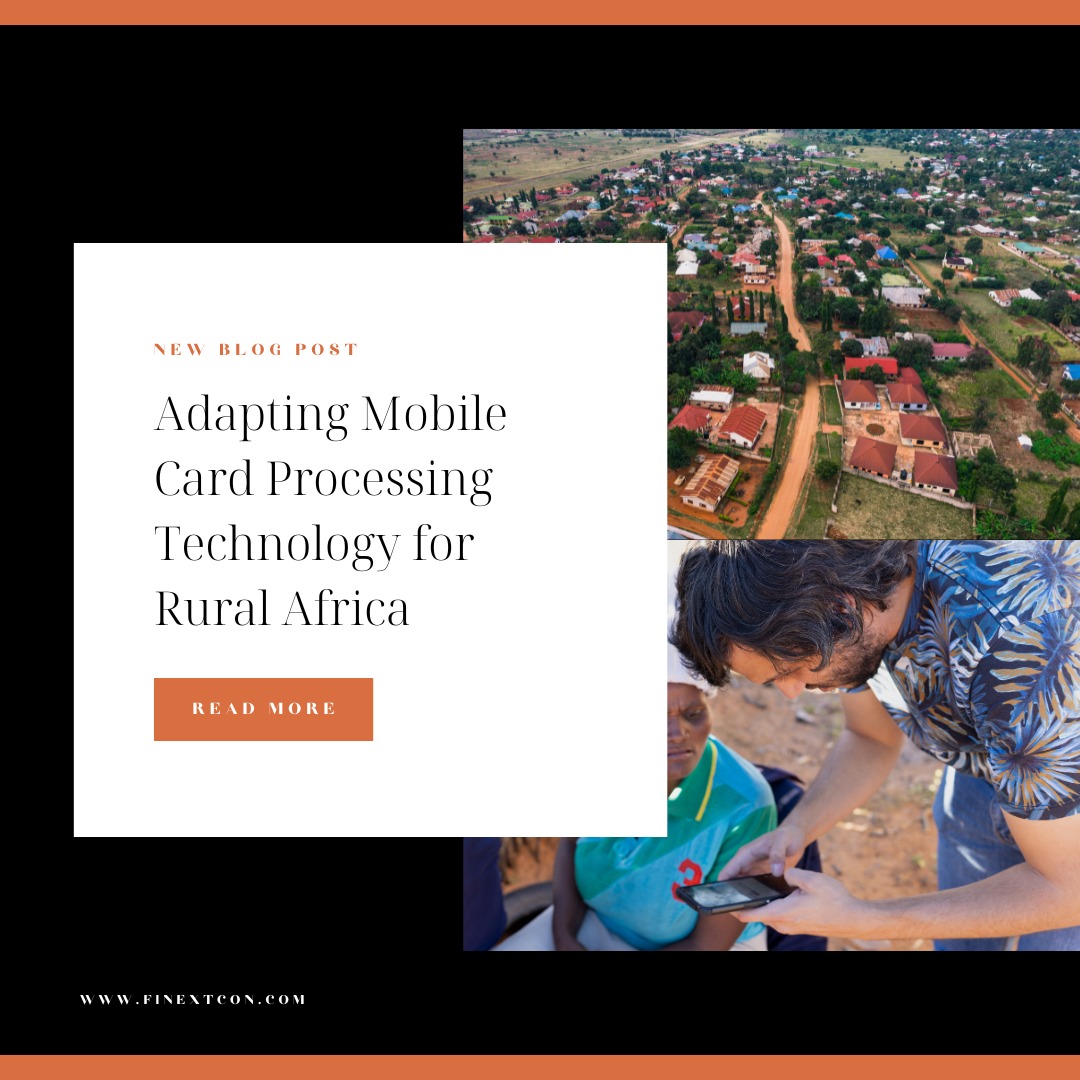Introduction
Rural Africa presents unique challenges and opportunities when it comes to financial inclusion and economic development. Traditional banking infrastructure is often limited or non-existent in many rural areas, leaving large segments of the population without access to basic financial services. However, the widespread adoption of mobile phones offers a promising solution. By leveraging mobile card processing technology, we can bridge the financial gap and empower rural communities in Africa.
The Current Landscape
In many rural parts of Africa, cash is still the dominant form of transaction. This reliance on cash can hinder economic growth and perpetuate poverty due to the risks and inefficiencies associated with cash handling. Moreover, the lack of banking services means that people cannot save money securely, access credit, or make electronic payments. Mobile card processing technology can address these issues by enabling secure, convenient, and affordable financial transactions.
Benefits of Mobile Card Processing Technology
- Financial Inclusion: Mobile card processing can bring millions of unbanked individuals into the financial system. By providing access to electronic payment methods, people in rural areas can participate more fully in the economy.
- Economic Empowerment: Entrepreneurs and small businesses can benefit immensely from mobile card processing. It enables them to accept payments electronically, reducing the risk of theft and making transactions more efficient. This, in turn, can lead to increased sales and business growth.
- Improved Security: Mobile card processing reduces the need to carry large amounts of cash, which can be a target for theft. Electronic transactions are also easier to track and manage, providing a clearer picture of financial activities.
- Convenience: With mobile card processing, users can make transactions anytime and anywhere. This flexibility is crucial in rural areas where physical banking infrastructure is sparse.
- Access to Financial Services: Beyond payments, mobile card processing can be a gateway to other financial services such as savings accounts, microloans, and insurance products. This can significantly improve the financial health and resilience of rural communities.
Challenges and Solutions
- Infrastructure: One of the main challenges is the lack of reliable internet and mobile connectivity in some rural areas. However, this can be mitigated by using offline-capable devices and leveraging technologies like USSD (Unstructured Supplementary Service Data) which do not require an internet connection.
- Affordability: The cost of mobile card readers and transaction fees can be prohibitive for some users. Implementing affordable and scalable solutions, possibly subsidized by governments or NGOs, can help overcome this barrier.
- Education and Trust: Building trust in mobile financial technology is essential. Many rural users may be unfamiliar with card processing technology. Comprehensive education campaigns and demonstrating the security and reliability of these systems can foster trust and adoption.
- Regulatory Environment: A supportive regulatory framework is crucial for the success of mobile card processing technology. Governments and financial regulators need to work together to create policies that encourage innovation while protecting consumers.
Success Stories
Several initiatives across Africa have already shown the potential of mobile card processing technology. For instance, M-Pesa in Kenya has revolutionized mobile banking and payment systems, bringing financial services to millions. Similar approaches can be tailored to the specific needs and contexts of different rural regions across the continent.
The Way Forward
To fully realize the potential of mobile card processing technology in rural Africa, a multi-stakeholder approach is needed. Governments, financial institutions, technology providers, and local communities must collaborate to create an ecosystem that supports the adoption and use of this technology.
- Partnerships: Forming strategic partnerships can help in pooling resources, sharing expertise, and scaling up successful models.
- Innovation: Continued innovation in mobile technology and financial services can lead to more effective and efficient solutions tailored to rural contexts.
- Community Engagement: Engaging with local communities to understand their needs and preferences is crucial for designing user-friendly and relevant financial products.
Conclusion
Adapting mobile card processing technology for rural Africa holds immense potential to transform the financial landscape, drive economic growth, and improve the quality of life for millions of people. By addressing the challenges and leveraging the benefits, we can create a more inclusive and prosperous future for rural communities across the continent.
